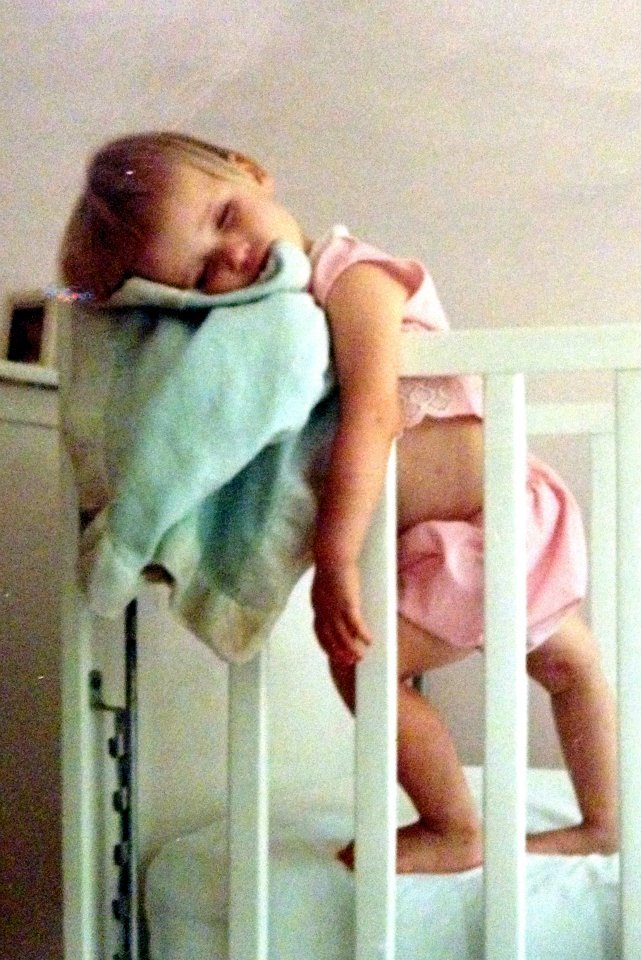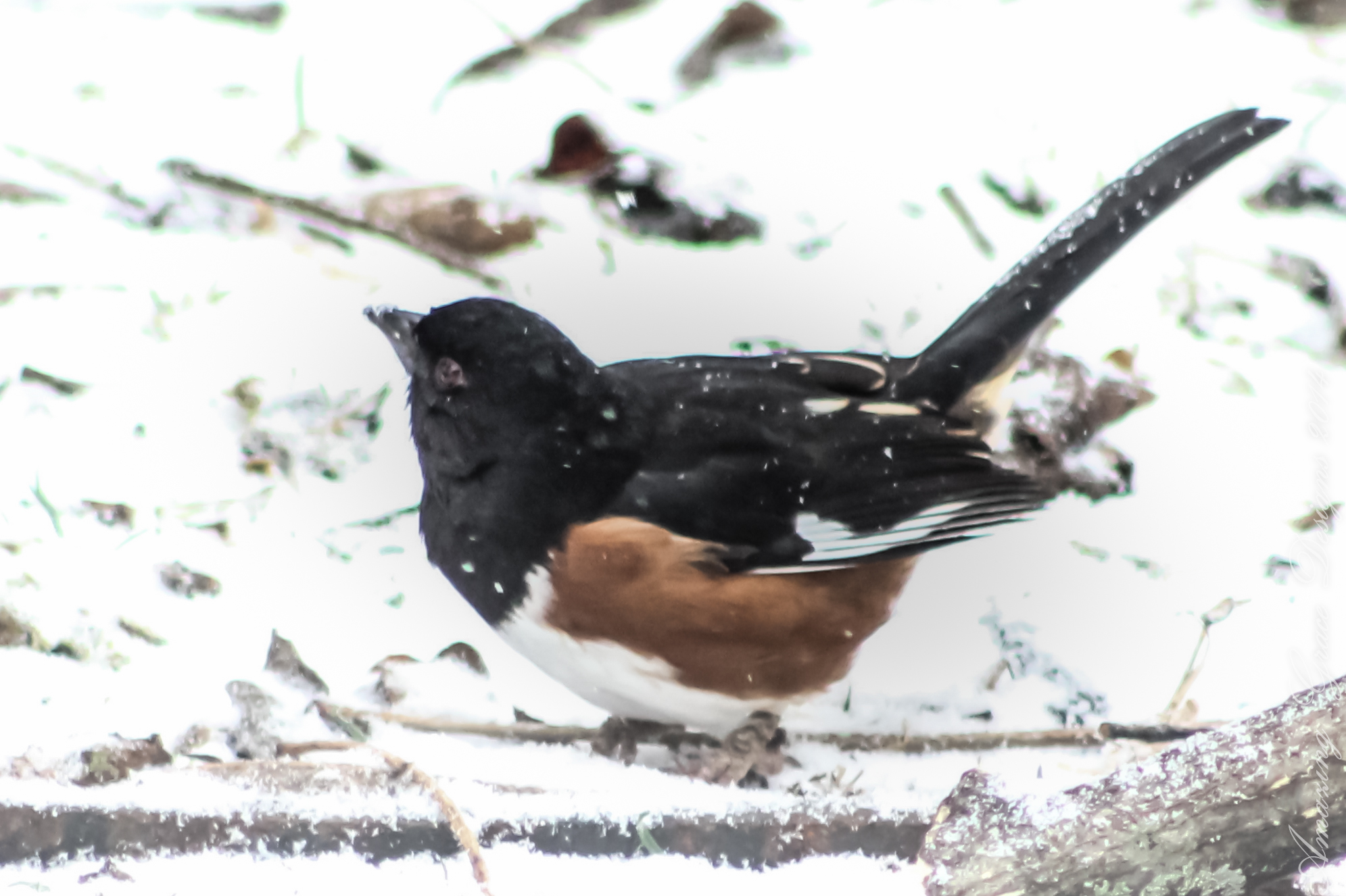Walking Away for Fresh Air, Fresh Perspective

Walking Away for Fresh Air, Fresh Perspective
“I only went out for a walk and finally concluded to stay out till sundown, for going out, I found, was really going in.”
―
♦♦♦
The photo still leaves me feeling a mixture of emotions. I was six years old. I was walking up the driveway toward the road in front of our house. I had left a note for my parents telling them I might move, then I added that if I did move I’d be in the woods, and since there was a lot of woods around us, I specified which tree in the woods. I suppose I hoped they’d want to find me if I moved, and when I look at the photo of that little girl heading out, I know that she was walking away from whatever inequity she must have felt she had been dealt that day. At six, it was probably the unfairness of being told to clean her room that sent her walking away. She moved to the woods for those few short hours, I believe, for the same reasons John Muir discovered that in going out, walking from Indianapolis to Mexico, he was really going in — looking for the greater truths in life.
Walking into nature almost always makes me feel better, and there’s a reason for that. First, walking is good for your mental health (research has actually proven this). Boosting your immune system and your energy, you can count on it to be a positive addition. Second, being in nature is very healing for the mind and the body. Stress, anxiety, and fear are all lessened as you spend more time in nature. Put walking and nature together, and it’s no wonder John Muir and many others have found their quality of life to be improved by walking in nature. We could stop there and go out for a stroll, but let’s talk a little more about walking and walking away.
Walking away can have an even bigger positive impact on your health than simply taking a walk. But what kinds of things would we walk away from? I was surprised to see a few things not on my personal list:
- toxic job
- toxic family
- a lease
- a fight
- a friendship (relationship)
- the past
Ok, I see the suggestions, but why? Why would I walk away from any of those things? Leaving a job won’t pay the bills, nor will it look great on a resume’. Family is forever, the lease means I’m stuck until the next renewal, and who wouldn’t want to stay and see a fight to the end, especially if we are right? Friendship, you mean some of those might be better left behind? Relationship? Are you saying that relationships won’t last forever? The past is what we learn from. We can’t just walk away from the past, can we?
And that’s how it happens, or doesn’t happen. We justify not walking away from pretty much everything, and we sacrifice joy, safety, and, often, self-respect. In researching the importance of being able to walk away, I found an article in Forbes about research from a national agency, and they said this about top performers in the business world, “One of their greatest gifts is the ability to identify toxic people and keep them at bay. It’s often said that you’re the product of the five people you spend the most time with. If you allow even one of those five people to be toxic, you’ll soon find out how capable he or she is of holding you back.”
Alright, I see where these aren’t healthy parts of a person’s life, and I know in my head that walking away would be wise, but how do you do it? This is where some good boots might be helpful. Some boots look sharp, and some boots, like my Timberland’s, are made for walking.
Walking away from a toxic job – Because toxic people are always going to be quick to blame you for any failings, you want to quit with class. Don’t throw your co-workers under the bus, don’t leave the company in a bind (give some notice), do make sure you’ve attempted to address issues appropriately. Walk away.
Walking away from toxic family (and from friendships) – Toxic doesn’t mean you find them annoying, nor does it mean you look at life differently (in the basic sense). Looking at information from professionals, though, toxic does mean family members who beat up on you verbally, lie about and blame you for problems you have not been part of, or who belittle you because of your values or beliefs. Most professionals supports telling them first (in case they are willing to make changes), but be prepared for them to say YOU are the one with the problem. Walking away means saying (to yourself about them), “thanks for the lessons,” visualize your wonderfully sharp shears cutting the tie, and move on with life.
Walking away from the past sounds like a painful cutting of ties, but we can never completely do that — people and events from the past shape who we are. We can separate ourselves, though, and acknowledge what those experiences meant for our growth. Thank the experiences for what they have taught you, and mentally leave them where they are. You and I are making new memories, and holding to the past as if it is the last pound of coffee will only hurt us.
I recently watched a friend go through a painful experience with someone who could have been honorable and chose to be otherwise. The other party could have taught their child a wonderful lesson, but they chose to teach a different kind of a lesson. They’ll probably be proud of how they got out of the mess, and my friend will have to choose to walk away. People do things that leave us feeling violated and wronged, and there are times that all we can do is walk away.
Today, I encourage you as much as I do myself to do some walking. There is so much waiting for us, but until we cut some ties with what brings us great pain — an abusive parent (as with Muir), an overloaded schedule, or toxic people we have convinced ourselves we must endure — we cannot know the incredible peace that comes with walking into life.



